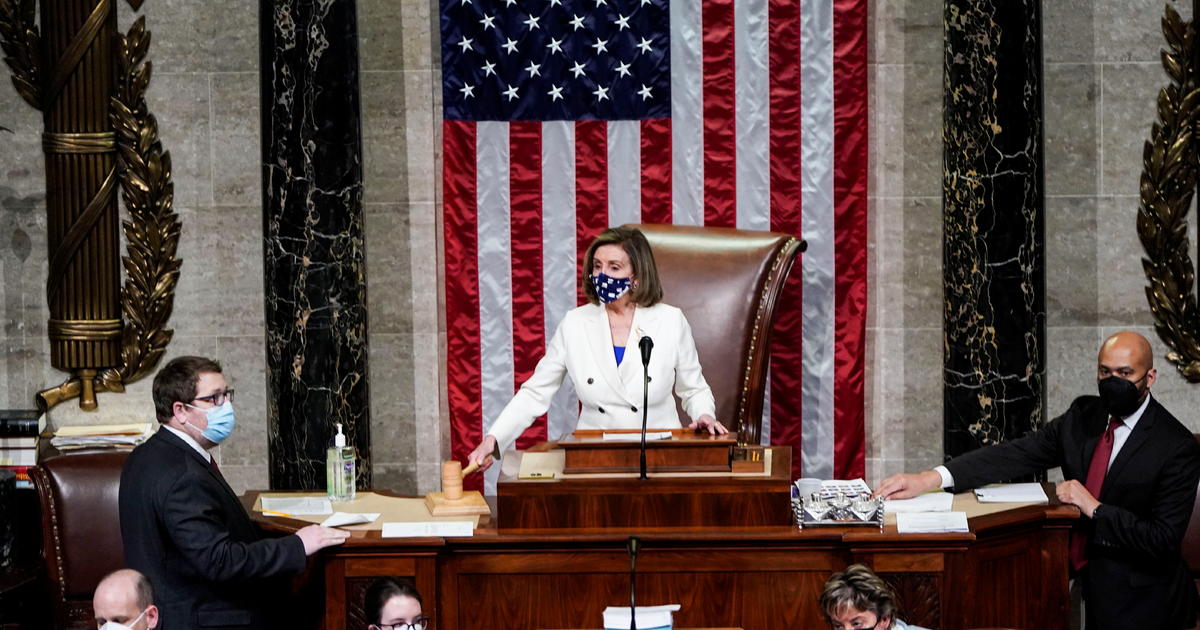
Washington – The House voted on Wednesday to re-approve the Violence Against Women Act (VAWA), the landmark 1994 law that strengthened the protection of domestic violence for women.
The House passed the re-authorization by 244 votes to 172, with 29 Republicans joining all Democrats to vote for it. But the measure, which expired two years ago, could hit a roadblock in the equally divided Senate.
VAWA provides legal protections for women who have experienced domestic and sexual violence. It was initially passed in 1994, defended by then-Senator Joe Biden, and was updated and re-authorized in 2000, 2005 and 2013. The bill expired in late 2018 due to a government shutdown and was briefly extended by a resolution to reopening of the government. , but expired in February 2019. Mr. Biden made the re-authorization of VAWA a major campaign promise before he was elected.
The White House Office of Management and Budget released a statement on Wednesday saying that “the administration is strongly supporting” the re-authorization of VAWA.
“VAWA re-authorization is now more urgent than ever, especially as the pandemic and economic crisis have only further increased the risks of abuse and the barriers to security for women in the United States,” the statement said. “The government is pleased that HR 1620 recognizes the need to protect and provide services to all victims of abuse and includes proposals to strengthen existing policies supported by Democrats and Republicans last year. this legislation. “
The current bill would expand services to victims and re-authorize funding programs for the criminal justice response to domestic and sexual violence. It also includes provisions that would expand housing options for survivors and end immunity for non-indigenous perpetrators of sexual assault on tribal grounds.
It would also close the so-called “boyfriend loophole” to prevent dating partners and stalkers convicted of domestic violence or abuse from buying and owning firearms. Earlier versions of the bill already prevented spouses convicted of domestic violence or abuse from obtaining firearms.
The House passed a version of VAWA in 2019 that included this amendment, but it died in the Senate, which was then controlled by Republicans. Some GOP lawmakers objected to this part of the bill, arguing that it was too broad. Republicans also objected to provisions that would have expanded the protection of LGBTQs and victims of undocumented immigrants.
In 2019, the bill received support from 33 House Republicans, and the current version is co-sponsored by Republican Congressman Brian Fitzpatrick.
“Congress has historically re-authorized VAWA with a broad, two-pronged agreement, and I look forward to working with my colleagues to ensure that VAWA continues to protect victims and survivors across the country,” Fitzpatrick said in a statement when the bill passed was filed earlier this month.
However, it is unclear whether VAWA can receive sufficient support in the Senate. Democrats hold a narrow majority of 50 seats, and most legislation requires 60 votes to advance in the Senate. Democrats need the support of at least 10 Republicans to pass the bill.
GOP Senator Joni Ernst, who introduced another VAWA authorization law in 2019 that lacked the support to be approved in the Senate, told reporters on Tuesday that she would reintroduce her own version of VAWA. She added that fellow Republican Senator Lisa Murkowski was working with her on parts related to the protection of women on tribal grounds.
“ What we hope to show is that we have enough Republican support on our behalf, and that we are willing to work with the Democrats on this, and hopefully by joining forces we can get the 60 votes needed and a well-modernized bill that will work for the senate, hopefully for the house then, ”Ernst said.
Murkowski told reporters on Tuesday that VAWA had previously been “derailed” because of the provision that closed the “loophole for boyfriends”.
“I think it is critical that we move VAWA forward,” she said.
The House also passed a resolution on Wednesday removing the deadline for ratification of the equal rights amendment. The resolution passed largely along party lines with a vote of 222 to 204, and four Republicans joined all Democrats in support of the measure.
During the debate on the floor prior to the vote, Democratic Congressman Jackie Speier, the bill’s sponsor, quoted late Supreme Court Justice Antonin Scalia.
Antonin Scalia, the great lawyer, once said: Does the constitution require gender discrimination? The answer is no. But if the question is, does the constitution prohibit gender discrimination? The answer is also no. of us that the United States Constitution does not protect women, ”said Speier. “There cannot be an expiration date for equality.”
An identical resolution has been tabled by Democratic Senator Ben Cardin and Murkowski in the Senate. The original deadline was 1979 and it was extended to 1982. No new state voted to ratify the amendment until 2017, when it was passed by Nevada. The change was ratified by Illinois in 2018 and Virginia in 2020.
Although the ERA reached the 38-state threshold to be passed with Virginia’s ratification, the Department of Justice, led by former Attorney General William Barr, issued an advisory in early 2020 stating that the three states’ ratifications did not count because they took place after the deadline. .
The House passed a bill in 2020 that scraps the deadline, but it quickly got stuck in the Senate because Mitch McConnell, the then Senate leader, declined to put it to the vote.
Murkowski told reporters on Tuesday that she did not believe the resolution currently has enough Republican votes to pass.
“On the Equal Rights amendment, I wish I could tell you that we had more Republican support for it at the moment. We will continue to work on it,” Murkowski said.